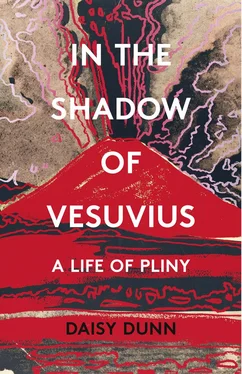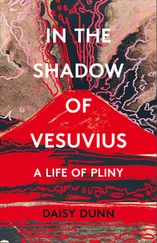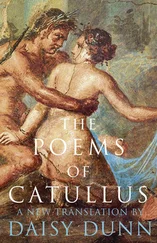1 ...8 9 10 12 13 14 ...18 There were few places where oratory counted for so much, for it was the jury who cast votes to determine the verdict of each case. There was a board of ‘Ten Men’ to preside over the panels of the court, and an interested emperor could overturn a verdict if he believed that it had been unfairly influenced, but responsibility for the delivery of justice lay principally with the lawyer and jury. Pliny was elected to the presiding board but also delivered speeches for the prosecution or defence. The main principles of the law he practised dated back to the fifth century BC, and although, as a senator, he had a role in shaping new laws authorised by the emperor into decrees, the focus in his letters is rather on his speeches and the characters he encountered in the courtrooms. 33Pliny called the Centumviral Court his ‘arena’, evoking the world of blood sports. 34There was no having recourse to the kind of statutes used today. His success depended on his strength of argument and performance.
‘Risk-taker’ was not the first word anyone would have used to describe Pliny, but as an orator this was what he aspired to be. He viewed his profession as an opportunity to spread his name far and wide, and understood that his reputation depended upon what people remembered of his speeches. 35He likened the sort of rhetoric he tried to write to both the tightrope walker’s art and the helmsman’s skill for daring. Just as a tightrope walker summons gasps whenever she looks as though she may fall, so the orator who soars to a precipice and hovers on the very edge of possibility thrills the crowd, for the riskiest feats carry the richest rewards. The same is true of the helmsman. The one who sails a calm sea, said Pliny, will find no one waiting for him at harbour. But the one who puts in with his sail ropes shrieking, his mast bent, his rudder groaning, is ‘almost put on a level with the gods of the sea’. 36
The difficulty for Pliny was that the Court of One Hundred rarely attracted the most spectacular cases. Its work was necessary but, by Pliny’s own admission, very often tedious. He despaired of the ‘unknown youths’ it employed as much as he did of the applauding rent-a-crowds who received bribes for attending ‘in the middle of the basilica, as openly as if they were being given in the dining room’. 37Only occasionally did Pliny land an opportunity to thrill the masses. He was once presented with a case involving a woman named Attia Viriola, her octogenarian father, and her father’s new lover. Following a ten-day romance, the elderly man had brought home ‘a stepmother’ for Attia, whose patrimony he now sought to take away. As Pliny prepared to speak in Attia’s defence, 180 jurors and almost as many spectators arrived at the basilica and proceeded to fill its benches and galleries. Pliny was surprised to find the members of the jury as divided as they were, some wholly sympathetic to the daughter, others unable to conceal their admiration for her spry father. But then he delivered his speech which, by his own account, was as intricately crafted as the armour that Vulcan forged for Aeneas in Virgil’s epic. With an eye to capturing the vividness of the poet, Pliny had composed a long speech ‘sustained by the amount of material, and its expressive structure, and the many little flights of narrative, and the variety of the style’. 38It was a triumph. The case was settled in favour of the daughter.
For all its shortcomings, the Court of One Hundred offered Pliny a valuable arena in which to rehearse his most daring oratorical leaps. He modelled himself on not only Virgil but the greatest orators of history: Demosthenes, Cicero, and Calvus. Demosthenes had been a politician and formidable orator in fourth-century BC Athens and established himself as the master of the comprehensive but perfectly structured argument. Calvus had flourished as both an orator and a poet in Catullus’ set in the first century BC and impressed Pliny with the sheer force of his words. For ‘rhetorical flourishes’, meanwhile, Pliny turned to Cicero. 39
When Pliny wasn’t mining the orators’ texts for inspiration, he was looking to the weather. Snow was best. ‘Driven and continuous and plentiful, divinely inspired and heavenly,’ it seemed to offer itself up as a model for the daring speech-writer. 40First came the blizzard, the storm of words. Then the let-up in the spate that allowed the finest phrases to melt into a jury’s ears. Finally, ice might be extracted from the slush and driven into them ‘like a sword at the body – for so a speech is impressed upon the mind by equal thrust and pause’. 41Snow may be incessant, but it is too varied in its consistency to be monotonous. Just as no one can stem snowfall, so Pliny believed no one ought to limit an orator or cut him short mid-flow.
He liked to remember how Odysseus stood as stiff as a skittle in the Iliad, but when he ‘spoke from his big chest his words were like the snowflakes of winter, and no other mortal could then rival Odysseus’. 42Such was the power of his words that they also turned those who heard them into melting snow. On returning home to Ithaca, as Pliny knew, Odysseus came before his wife Penelope in the disguise of a beggar and told her a false story that made her weep in remembrance for the husband she thought was lost to her:
As she listened her tears fell and her complexion melted.
Just as snow melts away on mountain peaks when the
West Wind pours it down and the South-East Wind melts it
And as it melts the rivers swell and flow,
So tears snowed down and melted her beautiful cheeks
As she wept for the man who was at her side. 43
Odysseus was a perfect model for Pliny. He showed him that, if the most innocent skies can deliver the greatest snowstorms, then the most unprepossessing men can deliver the greatest speeches. A slight man himself, Pliny took considerable comfort in the idea that even epithet-rich Odysseus cut an unpromising figure of an orator to begin with.
Indeed, Pliny liked to throw what little weight he had into his delivery, as if conscious to avoid Odysseus’ stiffness. He would imagine that he was planting ideas as he spoke like the seeds he sowed each winter: ‘barley, beans and other legumes’. 44Pliny received his initial training under a teacher of rhetoric named Quintilian who was a firm believer in the power of hand gestures. In a detailed treatise he described several which involved bringing the fingers into contact with the thumb in a sort of plucking motion. 45By stretching out his arms, plucking seeds from the air, and scattering them over an invisible trench, Pliny would give a visual demonstration of what little law and landowning held in common. It was rare he could bring his worlds together, but here he tried, combining what he had learned in the fields of his country estate near Perugia with what he had learned in the rhetoric schools of Rome. Nature had taught him to treat his oratory as he did his grain so as to prepare himself for every eventuality. ‘There are no fewer unanticipated and uncertain stratagems for the judges than there are for the weather and soil,’ he explained to Tacitus. 46And so in the courtroom he would reach around, scattering his enquiry as widely as the seeds upon his farms, and reaping whatever happened to take.
In Pliny’s eyes such thoroughness was a virtue because it guaranteed that he would alight upon all the important aspects of a case and bring justice to bear. For others, his conscientious approach suggested a blindness, a lack of instinct, an inability to get to the heart of the matter through intuition alone. Marcus Aquilius Regulus, one of Pliny’s contemporaries at the Court of One Hundred, thought fit to taunt him:
‘You think all angles ought to be pursued during a case, but I see the jugular straight away, and go for it.’
Читать дальше












